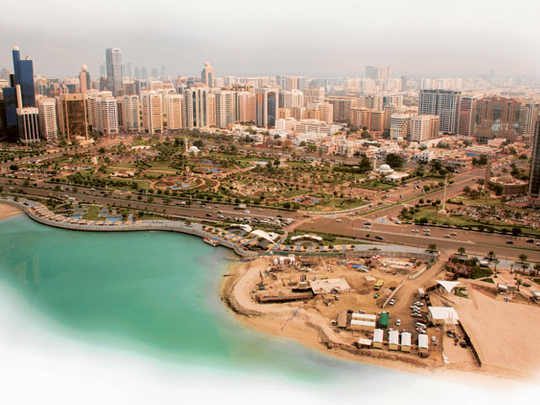
That old saying of “Build a better mousetrap and the world will beat a path to your door” couldn’t be truer than in the case of the UAE. The metaphor about innovation, hard work and the success that comes with it is reflected in the economic vibrancy of Abu Dhabi and Dubai.
People from around the world are attracted to these cities either to work or to invest and that’s not even counting the number of tourists and visitors each year. Interestingly, among those lured by prospects of work or investment are the nationals from the other Gulf countries, a study shows.
Nearly 5,300 Gulf nationals are working in the UAE, said the study, details of which appeared in an Arabic newspaper in Dubai. Many — 3,706 to be precise — are working in the public sector, and 1,584 in the private, Al Emarat Al Yawm reported. By comparison, 108 and 398 UAE nationals are working in the public and private sectors respectively in the other Gulf states.
The UAE share of the Gulf nationals’ provident fund, compulsory for GCC countries hiring Gulf nationals since 2006, is 40.3 per cent. It is just behind Kuwait, which has a 41.1 per cent share, according to a report obtained by Gulf News.
Highest representation
With 3,075 workers, Omanis constitute the highest number of Gulf nationals working in the UAE, followed by 344 Bahrainis, 271 Saudis, 10 Kuwaitis and six Qataris — all of them in the public sector.
Saudis have the highest representation of Gulf nationals working in the local private sector. Their ranks are estimated at 14,327.
Saudis are among the biggest investors in the UAE, especially Dubai. According to official figures, Saudi investments in Dubai properties totalled Dh4.6 billion of the Dh33 billion committed by GCC citizens last year. Emiratis invested Dh24 billion in Dubai’s realty in the same period. Dubai has also won a place among the top three “dynamic” cities in the world according to a recent ranking by Jones Lang LaSalle, the real estate services firm.
UAE’s ranks of employees and employers in the private sector come from scores of countries. Clearly, their motives are manifold. These include a modern lifestyle in a society that prides on retaining its heritage and traditions, efficient systems at various levels of government — you can get many of your work done online, and if not, the waiting time is short comparing to other places in the world — a well-planned infrastructure, good income, better opportunities and access to the rest of the world through one of the busiest airports in the world.
These elements justify UAE’s leading position among other GCC countries in terms of attracting Gulf businessmen. A total of 30,425 business licences were issued to Saudi investors, official figures show, and constitute nearly 85 per cent of the total issued to GCC nationals.
Diversified economy
Today, the UAE competes not only for capital inflows, but also in attracting expertise from the region and other parts of the world.
Saudi Arabia is the biggest oil producer and exporter in the world; Qatar is among the top three countries in the world in terms of natural gas reserves and Doha will have a piece of the global investment and expertise flow during its preparations to host the 2022 football World Cup.
While their quota of oil production, a vital element of their economies, is nearly similar for Kuwait and UAE at 3 and 2.7 million barrels per day respectively, there is quite a gap in their respective GDPs and favour of UAE.
The UAE’s plans to diversify its economy is bearing fruit, with Dubai giving special attention to other economic sectors. Abu Dhabi and Dubai, thus, are not only models for other Arab cities to follow, they are smart cities offering a smarter way of life.












